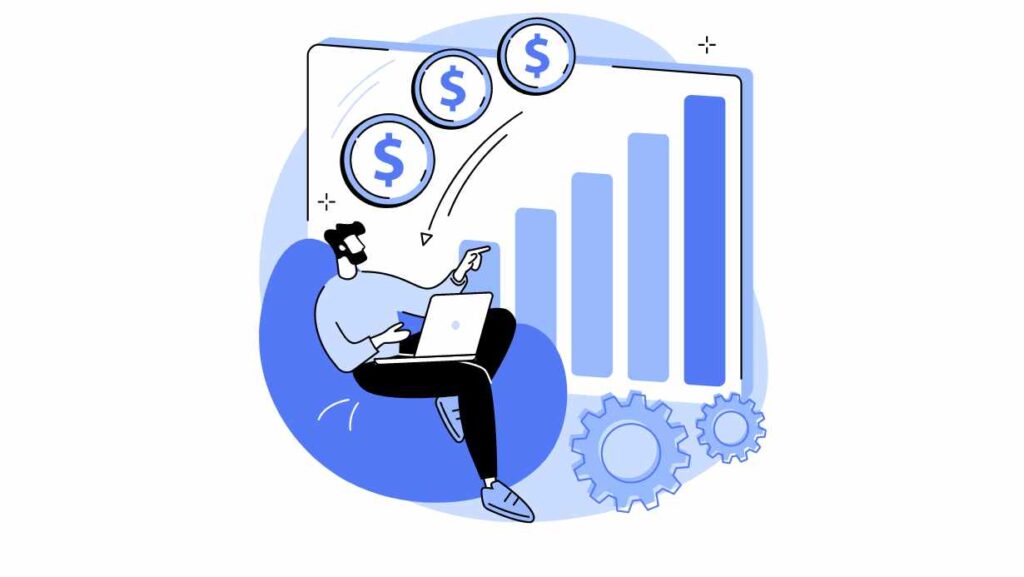Save Money Every Month
Welcome to the ultimate guide on Simple Clever Ways to Save Money Every Month. In today’s fast-paced world, managing finances wisely has become more critical than ever. Whether you’re saving for a vacation, paying off debts, or building an emergency fund, adopting money-saving habits can lead to significant financial benefits. In this article, we will explore various creative and practical strategies that can help you save money consistently each month. From budgeting techniques to smart shopping tips, we’ve got you covered with actionable advice and expert insights.
25 Clever Ways to Save Money Every Month
Let’s dive into some simple yet effective methods to save money without compromising your lifestyle or financial security.
1. Create a Monthly Budget: The Foundation of Saving
To successfully save money every month, you need a well-planned budget. Start by tracking your income and expenses meticulously. Use budgeting apps or spreadsheets to monitor where your money goes. Categorize your expenses into essential (like rent, utilities, groceries) and non-essential (like dining out, entertainment). Aim to allocate a portion of your income to savings each month.
2. Automate Your Savings: Set it and Forget it
One of the best ways to save money is to automate your savings. This means that you set up your bank account so that a certain amount of money is transferred into your savings account each month.
This may seem like a small amount, but it adds up over time! And the best part is, you don’t even have to think about it – the money is automatically transferred, so you don’t have to remember to do it yourself.

If you have a hard time saving money, this is a great way to make it easier on yourself. And once you have a nice little nest egg built up, you’ll be glad you did!
3. Cut Down Unnecessary Subscriptions
With the rise of digital services, it’s easy to accumulate subscriptions that you no longer use or need. Review all your subscriptions, such as streaming platforms, magazines, or software services. Cancel those you rarely utilize to save money each month.
4. Embrace Energy Efficiency: Reduce Utility Bills
Lowering your energy consumption is one of the key components of effective energy conservation, which can significantly impact your monthly expenses. Opt for LED bulbs, use power-saving modes on electronics, and insulate your home adequately to reduce heating and cooling costs.
Unplug devices when not in use to avoid phantom energy consumption. By embracing these energy-saving practices, you not only contribute to a more sustainable future but also enjoy substantial savings on your utility bills.
5. Plan Your Meals: Reduce Food Waste and Expenses
Create weekly meal plans and grocery lists to avoid impulsive buying and food wastage. Consider buying in bulk for non-perishable items and use coupons or discounts for groceries. Eating out less frequently can also contribute to substantial savings.
6. DIY Household Projects: Save on Repairs
Minor household repairs and improvements can be costly if you hire professionals. Instead, learn to handle simple tasks like fixing a leaky faucet, painting a room, or basic car maintenance. Numerous online tutorials can guide you through these DIY projects.
7. Use Public Transportation or Carpool
Reduce your transportation expenses by using public transportation or carpooling with colleagues or friends. This not only saves money on fuel and parking but also contributes to environmental sustainability.
8. Negotiate Bills and Interest Rates
You might not think that you have the power to negotiate your bills, but you do. Your service providers want to keep you as a customer, so they’re usually open to working with you on things like your monthly rate, late fees, and more.
It doesn’t hurt to ask, and you might be surprised at how much money you can save by simply having a conversation with your service provider. So if you’re feeling brave, give it a shot the next time your bill comes around.
9. Opt for Generic Brands
When shopping for groceries and household items, consider choosing generic or store brands instead of premium brands. Generic products often provide the same quality at a lower price, helping you save money without sacrificing value.
10. Refinance High-Interest Debts
If you have outstanding debts with high-interest rates, explore the option of refinancing. Consolidating your debts into a single, lower-interest loan can save you money on interest payments and simplify your financial obligations.
11. Establish a Savings Goal: Stay Motivated
Having a specific savings goal in mind can keep you motivated to save diligently. Whether it’s a down payment for a home, a dream vacation, or an emergency fund, visualizing the result will help you stay on track.
12. Shop Secondhand: Bargains Await
Thrift stores, consignment shops, and online marketplaces offer a treasure trove of pre-loved items at significantly lower prices. From clothing to furniture, shopping secondhand can yield considerable savings.
13. Reduce Credit Card Usage
One way to save money that you may not have thought of is using cash instead of credit. Credit can be tempting because it’s easy to spend money that you don’t have, but it can also lead to debt.
When you use cash, you’re more aware of how much money you’re spending because you can see it physically leaving your wallet. Plus, it’s more difficult to overspend when you’re using cash because you can only spend what you have.
If you’re used to using credit, make a budget and start withdrawing cash for your weekly or monthly expenses. You may be surprised at how much money you save by using cash instead of credit.
14. Take Advantage of Cashback and Rewards
You probably know that you can get cash back on certain credit cards, but did you know that you can use this to save money?
What I mean is, that if you use a cash-back credit card for all of your regular expenses—like groceries, gas, and even your morning coffee—you can earn a decent amount of money over time. And then, you can use that money to pay down debt or save for a rainy day.

So how does it work? Essentially, every time you purchase with your cash-back credit card, you earn a small percentage of that purchase back in the form of cash. The amount varies depending on the card, but it’s typically around 1-5%.
To maximize your savings, look for a card that offers bonuses for specific purchases—like 5% back on groceries or 3% back on gas. And then make sure to pay off your balance in full every month to avoid interest charges.
15. Compare Prices Before Making a Purchase
Before making significant purchases, shop around and compare prices from various retailers. Online platforms and price comparison websites make it easy to find the best deals on electronics, appliances, and more.
16. Grow Your Own Garden
Investing time and effort in a small garden can lead to significant savings on produce. Growing your fruits and vegetables not only reduces grocery expenses but also ensures fresher and healthier food options.
17. Bundle Services for Discounts
If you subscribe to multiple services, check if bundling them together offers cost savings. Many companies offer discounts when you bundle internet, cable, and phone services.
18. Avoid Impulse Buying
Impulse buying can quickly derail your savings efforts. Train yourself to wait a day or two before making non-essential purchases. You may find that you no longer feel the urge to buy, leading to money saved.
19. Refrain from ATM Fees
Withdrawing cash from ATMs that charge fees can quickly add up and eat into your hard-earned money. To steer clear of these charges, use ATMs that are affiliated with your bank or financial institution.
Check for nearby ATMs that offer fee-free withdrawals, and plan your cash needs accordingly. By making this simple adjustment to your banking habits, you can keep more money in your pocket and stay on track with your savings goals.
Say goodbye to ATM fees and hello to a healthier financial future!
20. Cut Down on Vices
Whether it’s smoking, excessive drinking, or indulging in costly hobbies, cutting down on vices can save you a substantial amount of money and promote a healthier lifestyle.
21. Optimize Insurance Policies
Optimizing insurance policies can lead to significant savings and improved coverage. Review and compare plans, bundle policies for potential discounts, and adjust deductibles to find the right balance between cost and protection.
Stay proactive in reassessing your insurance needs to ensure you have the best fit for your evolving circumstances.
By taking these steps, you can maximize the value of your insurance investments and have peace of mind knowing you’re well-protected without overspending.
22. Participate in Free Activities
Look for free or low-cost entertainment options in your community. Local events, parks, and community centers often host activities that provide entertainment without breaking the bank.
23. Utilize Discount Apps and Websites
Numerous apps and websites offer discounts and cashback on various purchases. By researching and downloading trusted apps, you gain access to a plethora of exclusive deals and coupons.
Stack discounts strategically, compare prices before purchasing, and time your buys during flash sales to make the most of these money-saving opportunities.

Don’t forget to stay organized with your discounts and stay vigilant against scams. With responsible coupon usage and a keen eye on policy changes, you can confidently shop and save money on a wide range of products and services, all at the touch of a button. Get ready to unlock substantial savings potential with discount apps and websites!
24. Reuse and Recycle
Embrace the concept of reusing and recycling whenever possible. Repurpose items for different uses to reduce the need for new purchases.
25. Work Towards Financial Goals
You might not think about this one as a way to save money, but working towards financial goals is a great way to stay on track. Set up a budget and make sure you’re automatically transferring a fixed percentage of your income into savings.
Another tip is to keep your goals realistic. It’s not going to be possible to save $1,000 in a week, but you can probably save $50. And every little bit counts!
Last but not least, make sure you have an emergency fund set up. This will help you cover unexpected expenses without having to put them on a credit card and rack up debt.
Conclusion: Save Money
Saving money every month doesn’t have to be a daunting task. By implementing these simple clever strategies, you can gradually build a robust financial foundation for a brighter future. Remember, financial success is achievable with determination, discipline, and the right money-saving tactics tailored to the opportunities in the country to earn money. Start implementing these tips today, and watch your savings grow while you continue to excel in your earnings and improve your financial future.
FAQs
How can I negotiate my bills and interest rates effectively?
When negotiating bills and interest rates, approach service providers with a polite and informed manner. Research competitor rates and mention your loyalty as a customer to leverage a better deal.
Is it essential to establish a savings goal?
Having a savings goal provides motivation and direction for your financial efforts. It helps you stay focused on saving and ensures you have a clear purpose for your money.
What are the benefits of shopping secondhand?
Shopping secondhand allows you to find bargains and unique items at lower prices. It also promotes sustainable consumer practices, reducing waste and supporting local thrift stores.
How can I avoid impulse buying?
To avoid impulse buying, adopt the habit of waiting before making non-essential purchases. Create a list and prioritize your needs over wants, giving yourself time to evaluate if the purchase is necessary.
See Also: 5 Online Typing Jobs To Make Money










